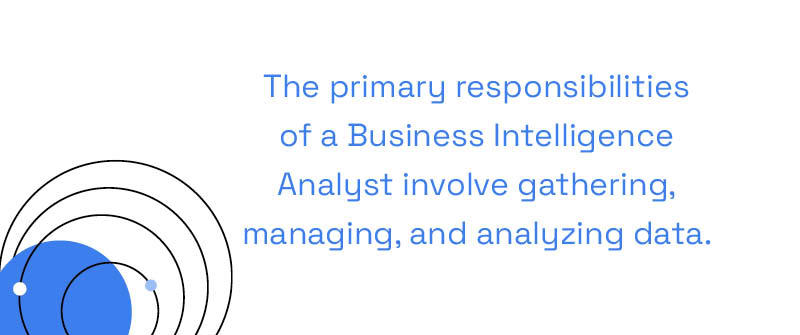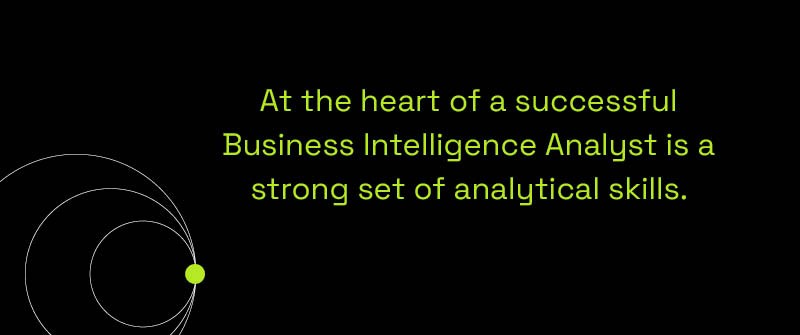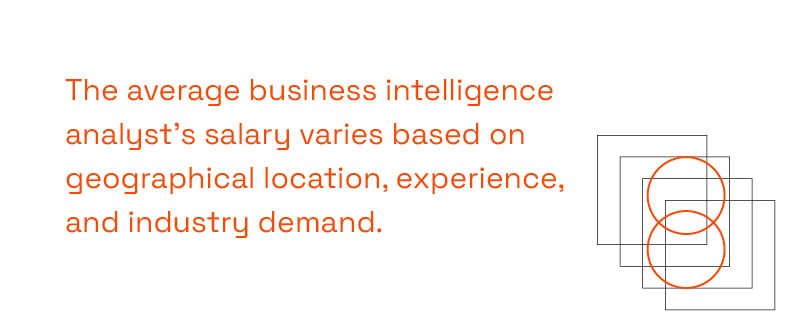
What Does A Business Intelligence Person Do?
The role of the business intelligence analyst plays a pivotal part in transforming data into actionable insights that drive strategic business decisions. These professionals are responsible for examining data to identify trends, making sense of vast volumes of information, and providing valuable insights to help organizations make informed decisions. Business Intelligence Consulting Services underpins many business strategies, enabling companies to optimize operations, improve performance, and gain a competitive edge.
Overview of the Role
The primary responsibilities of a Business Intelligence Analyst involve gathering, managing, and analyzing data. They also develop and monitor key performance indicators (KPIs). They use this data to develop metrics and models that identify business trends. From financial datasets to customer feedback, they interpret various data types to offer insights that can influence decision-making processes within the company. These analysts don’t just present data; they convert it into a compelling narrative that is easy for stakeholders at all levels to understand.

Data Analysis and Interpretation
At the heart of a Business Intelligence Analyst’s job is data analysis and interpretation. Data analysis tools are crucial in this role, enabling analysts to process and analyze large datasets to derive meaningful insights for strategic decision-making. Utilizing advanced data analytics and visualization tools, they delve into complex datasets to identify patterns that could suggest new business opportunities or indicate areas of concern. This comprehensive data analysis allows businesses to anticipate market shifts and align their strategies accordingly.
Strategic Decision-Making Support
In addition to data analysis, business intelligence analysts play a critical role in supporting strategic decision-making. By providing clear and actionable insights, they help businesses develop data-driven strategies. Their insights can influence key business objectives, from enhancing product lineup effectiveness to optimizing marketing campaigns and refining customer service procedures.
Reporting and Data Visualization
One of the most impactful ways Business Intelligence Analysts support decision-making is through reporting and data visualization. They create dashboards and other visual aids that enable decision-makers to grasp complex data at a glance. These visualizations are essential tools for conveying the significance of data insights clearly and concisely to stakeholders, helping to bridge the gap between raw data and strategic action.
What Is a Business Intelligence Job Function?
The job function of business intelligence plays a critical role in transforming raw data into valuable insights that help companies make informed decisions and remain competitive but what is a business intelligence consultant? At its core, this function entails the collection, processing, and analysis of data to assist various departments across an organization. Business intelligence analysts meticulously analyze data to uncover patterns, trends, and insights that aid strategic business choices. It serves as a bridge between data and strategic business decisions.
Key Duties and Tasks
A business intelligence analyst is responsible for a range of key tasks, including the extraction and manipulation of data from various sources, creating comprehensive reports, and making the data accessible and understandable to stakeholders. Data analysis skills are essential for performing these tasks effectively, as they help uncover insights from data that inform strategic decisions. These tasks are crucial for identifying patterns and trends.
Supporting Various Business Departments
Business intelligence functions support different departments by offering insights that enhance performance metrics, from sales and marketing to operations and finance. These functions can provide detailed market trend analysis, supply chain optimization, and forecasting.
Improving Operational Efficiency
One of the major objectives of business intelligence is to enhance operational efficiency. By providing data-driven insights, a business intelligence analyst can identify bottlenecks and inefficiencies in business processes, paving the way for improved productivity.
Identifying Market Trends and Opportunities
A business intelligence function is also essential for recognizing opportunities and trends in the market. Through thorough data analysis, analysts can uncover insights about consumer behavior and competitive dynamics, enabling companies to adapt their strategies promptly and effectively.
What Skills Do You Need To Be A Business Intelligence Analyst?
Analytical Skills
At the heart of a successful Business Intelligence Analyst is a strong set of analytical skills. These skills allow for the thorough examination of complex datasets to extract relevant insights. Business intelligence (BI) is reliant on identifying patterns, trends, and anomalies that can be actionable for business growth. Analysts should be adept at performing root cause analysis, trend analysis, and predictive modeling. This helps them provide valuable inputs for strategic planning and decision-making.

Technical Skills with BI Tools
The role of a BI Analyst requires proficiency with various BI tools and technologies. Familiarity with data visualization software such as Tableau, Power BI, or QlikView is essential. These tools enable analysts to translate raw data into comprehensible visual reports and dashboards. Additionally, knowledge in database querying languages like SQL and experience with data warehousing solutions bolster an analyst’s ability to perform substantive data extraction and manipulation efficiently.
Communication and Presentation Abilities
Beyond just crunching numbers, a Business Intelligence Analyst must possess excellent communication and presentation skills. It’s crucial for translating complex, technical data insights into narratives that are accessible to stakeholders from all levels within an organization. This not only involves preparing reports but also involves meeting with executives to help them understand the implications of their findings, thus ensuring data-driven decisions are embraced across the board.
Problem-solving and Critical Thinking
Business challenges are often multifaceted, demanding critical thinking and adept problem-solving skills. A good BI analyst evaluates situations from multiple perspectives, considering both qualitative and quantitative inputs to develop coherent solutions. They must be innovative in resolving issues, using data creatively to highlight opportunities and mitigate risks. The ever-evolving business environment requires BI analysts to be adaptive, continually learning and applying new methodologies to improve business operations.
How To Become A Business Intelligence Analyst?
Educational Qualifications Required
To embark on a path towards becoming a Business Intelligence Analyst, a solid educational foundation is paramount. Acquiring a degree in business analytics can provide individuals with advanced skills necessary for higher-level positions. Typically, a bachelor’s degree in fields such as computer science, information technology, business administration, or a related discipline is required. This formal education serves as a cornerstone, providing essential knowledge in data management and analytical processes that are critical in this role.
Moreover, pursuing higher education, like a master’s degree in data analytics or business intelligence, can offer an edge, equipping aspiring analysts with advanced skills and comprehensive industry insights. Such advanced studies often delve deeper into the intricacies of data science, business strategy, and technological tools, setting the stage for a robust career in business intelligence.
Relevant Certifications and Training
While educational qualifications lay the groundwork, acquiring specific certifications can significantly enhance your credentials and make you stand out in the competitive job market. Certifications such as the Certified Business Intelligence Professional (CBIP), Microsoft Certified: Data Analyst Associate, and SAS certifications are highly regarded.
These certifications not only validate your technical acumen and proficiency with important tools but also reflect your commitment to professional growth. They demonstrate a deep understanding of data analytics, visualization, and the integration of data-driven strategies into business operations, which is invaluable for those aspiring to excel in the role of a Business Intelligence Analyst.
Gaining Practical Experience
Hands-on experience is critical in transitioning from academic learning to practical application. Engaging in internships or entry-level positions provides a platform to apply theoretical knowledge in real-world scenarios. It’s about immersing yourself in the daily operations of data analysis, learning how to interpret complex datasets, and supporting business decision-making processes.
Such experiences are invaluable, as they offer insights into the nuances of data handling, the challenges encountered in real-time analysis, and the application of BI tools, which are crucial for proficiency in this domain. As you accrue practical experience, you refine skills that are fundamental to delivering strategic insights.
Career Advancement and Growth
As a business intelligence analyst, career growth is not only about rising through the ranks but evolving your skill set to tackle more strategic challenges. The average business intelligence analyst’s salary varies based on geographical location, experience, and industry demand. Advancing in this field often involves transitioning into roles such as BI manager or analytics director, where you’re tasked with overseeing entire data strategies and guiding business decisions at a higher level.

The path to advancement requires continuous learning and adaptation. Embracing emerging technologies and staying abreast of industry trends ensures that your skills remain relevant and innovative. Networking with professionals and participating in industry events can also provide new perspectives and opportunities for growth.
Transform your aspirations into achievements with P3 Adaptive, where we harness elite talent and technology to turn data into your greatest strategic advantage. Let us guide you to navigate career transitions seamlessly and attain your professional milestones with confidence. Partner with P3 Adaptive and let us help you steer your business towards success. Contact P3 Adaptive today.
Get in touch with a P3 team member